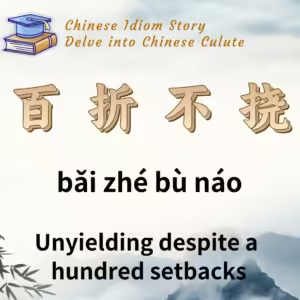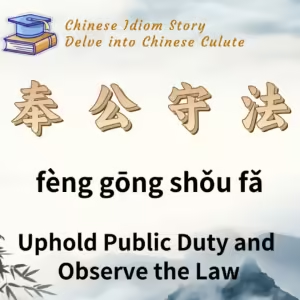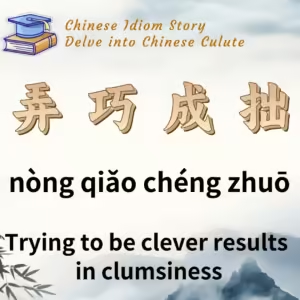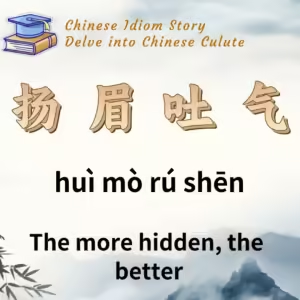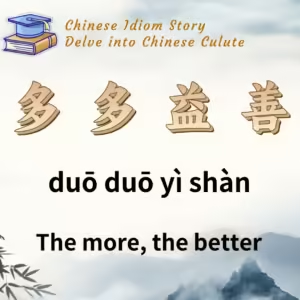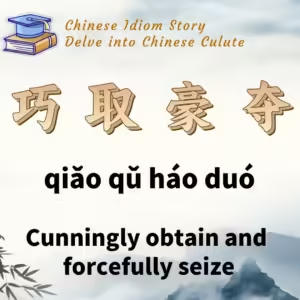
Chinese Idiom: 巧取豪夺 (Qiao Qu Hao Duo)
English Translation: Cunningly obtain and forcefully seize
pīn yīn: qiǎo qǔ háo duó
Idiom Meaning: This idiom refers to obtaining property, power, or other benefits through coercion or deception. “巧取” (qiǎo qǔ) means to obtain something through trickery or deceit, while “豪夺” (háo duó) means to seize something by force.
Historical Source: Qing Dynasty’s periodical “Qingbo Zazhi” (《清波杂志》), a collection of anecdotes and stories.
During the Northern Song Dynasty, there was a renowned calligrapher and painter named Mi Fu (米芾, Pinyin: Mǐ Fú). His artworks were highly admired by the public. His son, Mi Youren (米友仁, Pinyin: Mǐ Yǒurén), also became a skilled painter and calligrapher under his father’s guidance. Mi Fu had a particular passion for ancient books and paintings.
One day, while Mi Fu was traveling and visiting other people’s boats, he came across a work by Wang Xizhi (王羲之, Pinyin: Wáng Xīzhī), a revered calligrapher of the Jin Dynasty. Mi Fu was so enamored with the piece that he desperately wanted to exchange it for a painting he had meticulously created. Despite his pleas, the owner of the calligraphy refused to make the trade. In his frustration, Mi Fu even tried to jump into the water, but fortunately, others managed to stop him before any trouble ensued.
Mi Fu and his son were also known for their skill in copying ancient texts and paintings. They would go to great lengths to borrow genuine works and then create high-quality replicas. They would present both the original and the imitation to the owner, often fooling them into believing the imitation was the genuine article due to their excellent imitation techniques.
On one occasion, Mi Fu borrowed a Tang Dynasty painting titled “The Cattle Herd” by Dai Song (戴嵩, Pinyin: Dài Sōng). Later, he kept the original painting and returned a copy to the owner. The owner did not realize the switch at first and took the imitation back with him. After some time, the owner returned, demanding the original. Mi Fu pretended not to understand how he could distinguish between the real and the copied version. The owner explained that the genuine painting had a reflection of a shepherd boy in the cow’s eye, which the imitation lacked.
As time passed, people began to believe that Mi Fu’s collection of rare calligraphy and artworks was a result of “巧取豪夺” – cunningly obtaining and forcefully seizing valuable items.

